Opiate addiction is a chronic and challenging condition that affects millions of individuals and their families. While overcoming the immediate effects of addiction is a significant achievement, long-term recovery requires ongoing commitment and the right tools to ensure lasting success. At Bold Steps Behavioral Health, we provide comprehensive care tailored to every stage of recovery, helping individuals build a foundation for a healthier, addiction-free future.
In this guide, we’ll explore strategies, tools, and resources for sustaining long-term recovery from opiate addiction, emphasizing the importance of professional treatment and ongoing support.
Understanding Opiate Addiction Recovery
Recovery from opiate addiction is not just about abstaining from substance use—it’s a transformative journey of healing the mind, body, and spirit. While medical detox and initial treatment are critical, maintaining sobriety over the long term requires addressing underlying issues, building a support system, and developing healthy coping mechanisms.
Challenges of Long-Term Recovery
- Physical Dependence:
Opiate use alters brain chemistry, leading to intense cravings and withdrawal symptoms, which can persist long after detoxification. - Psychological Triggers:
Stress, trauma, or emotional challenges can trigger a return to substance use without proper coping strategies. - Social and Environmental Factors:
Returning to environments where substance use was prevalent or encountering social pressures can increase the risk of relapse.
Recognizing these challenges is key to creating a sustainable recovery plan.
Tools for Long-Term Success in Opiate Addiction Recovery
Achieving long-term recovery involves utilizing a combination of professional treatment, personal strategies, and support networks. Here are the essential tools for lasting success:
1. Professional Treatment Programs
Medical Detox Program
The journey to recovery begins with detoxification. At Bold Steps Behavioral Health, our Medical Detox Program provides a safe, supervised environment where individuals can withdraw from opiates comfortably. This critical first step helps prepare the body and mind for further treatment.
Opiate Addiction Program
Our specialized Opiate Addiction Program addresses the unique challenges of opioid dependency, offering evidence-based therapies and medical care to support long-term recovery.
Partial Hospitalization Program (PHP)
For those needing structured and intensive care, our Partial Hospitalization Program provides comprehensive treatment during the day, allowing individuals to return home in the evenings. PHP includes individual and group therapy, medical monitoring, and relapse prevention strategies.
Intensive Outpatient Programs (IOP)
Our Intensive Outpatient Programs offer flexibility for individuals balancing recovery with personal or professional responsibilities. IOP focuses on skill-building, emotional regulation, and ongoing therapy.
Outpatient Treatment Program
For those in the later stages of recovery, our Outpatient Treatment Program provides continued support through regular therapy sessions, counseling, and access to resources for relapse prevention.
Virtual Treatment Program
Convenience and accessibility are essential for many individuals. Our Virtual Treatment Program delivers high-quality care online, allowing individuals to participate in therapy and counseling from the comfort of their homes.
2. Behavioral Health Treatment
Addiction often co-occurs with mental health conditions like anxiety, depression, or PTSD. Addressing these conditions is critical for long-term recovery. At Bold Steps Behavioral Health, we integrate Behavioral Health Treatment in New Hampshire into all our programs to provide comprehensive care.
Key Components of Behavioral Health Treatment:
- Cognitive Behavioral Therapy (CBT): Helps individuals identify and change negative thought patterns that lead to substance use.
- Dialectical Behavior Therapy (DBT): Focuses on emotional regulation, stress management, and improving interpersonal relationships.
- Trauma-Informed Care: Addresses unresolved trauma that may contribute to addiction.
3. Building a Strong Support Network
Recovery is not a solitary journey—it thrives on connection and community. Building a robust support network is one of the most effective tools for sustaining long-term sobriety.
Family Involvement
- Family therapy helps rebuild trust, improve communication, and educate loved ones about addiction and recovery.
- A supportive home environment significantly enhances recovery outcomes.
Peer Support Groups
- Groups like Narcotics Anonymous (NA) and SMART Recovery provide a sense of community and shared experiences.
- Connecting with others who understand the challenges of recovery fosters accountability and encouragement.
Community Engagement
- Volunteering, joining sober social groups, or participating in local events helps individuals rebuild purpose and maintain a positive lifestyle.
4. Healthy Coping Strategies
Learning to manage stress and navigate life’s challenges without resorting to substance use is crucial for long-term recovery.
Mindfulness and Meditation
Practices like mindfulness, yoga, and meditation promote emotional regulation, reduce stress, and improve overall well-being.
Physical Activity
Exercise is a powerful tool for recovery, releasing endorphins that improve mood and reduce cravings. Activities like walking, swimming, or gym workouts can be incorporated into daily routines.
Creative Outlets
Art, music, writing, or other creative pursuits provide a healthy way to process emotions and focus on personal growth.
5. Relapse Prevention Planning
Relapse is a common part of the recovery journey, but it can be managed and prevented with proper planning.
Identifying Triggers
Understanding personal triggers—whether emotional, social, or environmental—helps individuals prepare strategies to avoid or cope with them.
Developing a Relapse Prevention Plan
A relapse prevention plan includes coping mechanisms, a list of supportive contacts, and steps to take if relapse occurs. At Bold Steps, our therapists work with individuals to create personalized plans that empower them to stay on track.
Continued Therapy and Counseling
Ongoing therapy provides a safe space to discuss challenges, celebrate milestones, and refine coping strategies.
Why Choose Bold Steps Behavioral Health for Long-Term Recovery?
At Bold Steps Behavioral Health, we are committed to providing comprehensive care tailored to the unique needs of each individual. Our programs are designed to support every stage of recovery, from detoxification to long-term aftercare.
What Sets Us Apart?
- Personalized Treatment Plans: We create customized plans based on individual goals and circumstances.
- Full Continuum of Care: Our programs include Medical Detox, PHP, IOP, Outpatient, and Virtual Treatment options.
- Dual Diagnosis Expertise: We integrate mental health care into all our programs to address co-occurring conditions.
- Experienced Team: Our licensed therapists, medical professionals, and addiction specialists provide compassionate, evidence-based care.
- Safe, Supportive Environment: Located in New Hampshire, our facilities offer a judgment-free space for healing and recovery.
Conclusion
Long-term recovery from opiate addiction is a lifelong journey that requires dedication, resilience, and the right support system. By combining professional treatment, behavioral health care, and personal strategies, individuals can achieve lasting sobriety and a brighter future.
At Bold Steps Behavioral Health, we’re here to guide you every step of the way. Whether you need a Medical Detox Program, an Opiate Addiction Program, or ongoing support through our Outpatient Treatment Program, our team is dedicated to helping you succeed.
Take the first step today. Call us at (603) 915-4223 or visit Bold Steps Behavioral Health to learn more about our programs and begin your journey to lasting recovery.
FAQ on Long-Term Recovery from Opiate Addiction
What is long-term recovery from opiate addiction?
Long-term recovery refers to the ongoing process of maintaining sobriety after completing initial treatment for opiate addiction. It involves building healthy habits, managing triggers, and addressing underlying mental health issues to sustain a substance-free life.
Why is professional treatment important for long-term recovery?
Professional treatment provides the foundation for recovery by addressing physical dependence, psychological triggers, and co-occurring mental health conditions. Programs like a Medical Detox Program, Opiate Addiction Program, and Intensive Outpatient Programs offer structured support and tools for long-term success.
What challenges do individuals face in long-term recovery?
Common challenges include:
- Physical: Persistent cravings or post-acute withdrawal symptoms.
- Psychological: Triggers from stress or unresolved trauma.
- Social: Exposure to environments or relationships associated with substance use.
What tools are essential for sustaining recovery?
Key tools for long-term recovery include:
- Participation in support groups like Narcotics Anonymous (NA).
- Ongoing therapy through Outpatient Treatment Programs or Virtual Treatment Programs.
- Healthy coping strategies such as mindfulness, exercise, and creative outlets.
How does family support impact recovery?
Family involvement enhances recovery by fostering a supportive environment. Family therapy helps rebuild trust, improve communication, and educate loved ones about addiction and recovery.
Can mental health issues be treated alongside opiate addiction?
Yes, at Bold Steps Behavioral Health, we offer Behavioral Health Treatment in New Hampshire to address co-occurring conditions like depression, anxiety, and PTSD alongside addiction. This integrated approach improves overall well-being and reduces the risk of relapse.
What should a relapse prevention plan include?
A relapse prevention plan should identify personal triggers, coping strategies, and supportive contacts. Regular therapy and access to community resources also play a critical role in preventing relapse.


